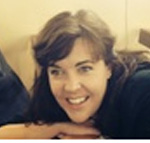Writerly Rant #68
By Tara Sparling, Author.
Originally posted on Tara Sparling Writes ~
Here is a very important quote, which every past, present or future self-published author needs to see:
“Times are bad. Children no longer obey their parents, and everyone is writing a book.” (Cicero, c. something BC)
Now, here’s the catch. There is no evidence that this quote ever originated from this lofty Ancient Roman philosopher more than 2,000 years ago. In fact, there is no evidence that this quote originated from any period greater than 100 years ago.
And yet, since the early 1900s, this quote has been bandied about in some form or another, always attributed to the ancient world. Most early attributions quote the literary portion reading something like “and every man wants to write a book”. Others attribute the more generalised version of “and everyone is writing a book” to some point between the 1980s and 2001.
The point is that right from at least the beginning of the last century, all the way up to the year 2001, which was still before the great self-publishing revolution, this quote was consistently, well, quotable, because enough people thought that too many in society were writing books.
The only difference with today, is that there are more forms of media available in order to feed the paranoia about it.
 It is true that more people are self-publishing nowadays. Cheaper routes to publication and digital transmission have made that possible. But the impact of that today, surely, is simply that we’re now hearing about more of them.
It is true that more people are self-publishing nowadays. Cheaper routes to publication and digital transmission have made that possible. But the impact of that today, surely, is simply that we’re now hearing about more of them.
We can now become aware of some wholly unconnected author, thousands of miles away, who is writing in the same genre as us. We may even read their blog, communicate with them, make snap judgements about them and their work, and start a massive argument in their comments section. Hurrah!
Picture the scene. Only, picture it twice: One author has just finished his book in the late 1990s; the other in 2015.
***************************
The late 1990s. Dublin. Writer’s Garret.
The emphysemic printer stuttered to a stop, cranking out the last smeary, bubble-jet pages, as their author wept. Paul felt as drained as an overused simile. He lit a cigarette and examined the callouses on his fingertips from the clunky beige keys on his stained keyboard. He exhaled heavily, an audible catch on his throat.
“That’s it,” he intoned. “It’s finally finished. 500 leaves of my blood, sweat and tears.”
He stacked the pages together, slotting them into the battered envelope which once contained the last will and testament of his father.
“And he said I’d never amount to anything,” he snarled. He stared, nonplussed, at the wheezing printer, as if surprised that he was addressing anything at all, let alone his closest companion on his solitary writing journey, the sole instrument as yet to bear witness to Paul’s triumph of will over talent.
“But look at me now, old man,” he said triumphantly, as he stubbed out his cigarette on the steel cap of his Doc Marten. “As soon as publishers see my guaranteed-bestseller conspiracy thriller about secret Christian societies, I’ll be paying other people to dance on your grave.”
Paul smiled. He was the only person he knew who had ever written a book. He was going to be beating the women off with a stick.
***************************
2015. Dublin. Café With WiFi.
It all looked so real when she saw it in PDF. Just for the hell of it, Milendra uploaded her unpublished manuscript to her Kindle, and there it was. 125,000 words; the product of four years of hair-wrenching toil and bitten fingernails. Her opus maximus. Her life on a page.
“It’s done,” she breathed, with the same sense of wonder as she’d felt when she’d received the first ever comment on her blog, telling Milendra it was a “very good blog”, and the sender, a maker of knock-off handbags, was keen to thank her “for these sorts of informations”.
This was it. It was time to research her self-publishing marketing plan online.
Oh, Christ. There seemed to be some guy writing a very similar-sounding conspiracy thriller about right-wing groups creating terror threats in order to blame foreign extremists. And he had 20,000 blog followers and 87,403 Facebook Likes.
She’d better check Amazon.
She stared gloomily at the phone, tablet and laptop in front of her. They all told her the same thing. There were already 8,380 entries in the Amazon “Conspiracy Thrillers: Right-Wing Groups Creating Terror Threats In Order To Blame Foreign Extremists” category. And she’d bet that every single one of them had more followers than she had.
She glowered at her three screens. There were just too many people writing books. She was never going to be able to kill all of them.
***************************
What do you think? Do you believe that there are now vast quantities of people writing full-length novels, who would otherwise not have done so, just because self-publishing has become more affordable? What impact do you think this has on you, either as a reader or a writer?
 Tara writes novels, short fiction and screenplays.
Tara writes novels, short fiction and screenplays.
She spends all of her spare time with words. The writing of them and the reading of them. However, she has a day job which hinges on numbers – pushing them around, extracting meaning from them and generally insulting them.
Currently in production are three novels, all in various quantum states of editing and, for now, submissions limited to competitions; more than two feature length screenplay treatments, and usually, at least three or four short scripts. It’s a lot of work, but a labour of sickly-sweet true love.
As a fully certified nerd who loves spreadsheets, graphs and visualisations, there is nothing Tara likes better than a perfectly proportioned pie chart. Unless, of course, you’re talking about a well-stocked bar chart.
http://tarasparlingwrites.wordpress.com/
Categories: Rants, Writerly Rants



Tara, I really liked the comparison between the comparatively recent past and the present! I started writing on a portable mechanical typewriter at a time when it was still state of the art, so it was easy to laugh at the 1995 guy, and sympathize with the lady contemplating 8000-odd homicides. 1995 was about the time I got my first desktop PC, which I regarded as being as much of an advance over the typewriter as the typewriter was over pen and paper.
One might also imagine a monk who has spent most of his life creating illuminated manuscripts looking at the first Gutenberg bible. Scriptorium vs. print shop!
But the major point you make is about getting noticed, I believe, and I don’t think that has actually changed. Writers today can eliminate the middlemen of agents and publishers, but that leaves them the problem of marketing their own work. Perhaps fewer books were published “back in the day” but getting noticed back then meant luring an already-captive audience (readers) someplace they dearly wanted to go, one or more brick and mortar bookstores, where those enticing wares would be placed on racks for all to see. Your 8000+ figure delineates the difference between the few hundred choices already printed, and now.
That, I think, is the next big hurdle, but here’s the thing: even if there’s a way to completely fine-tune a search request to take you to the exact sort of book you want, narrowing the choices to a mere handful along the way, there are two problems with that approach: (a) who knows how to jump through the technological hoops required to craft such a request, and (b) is there any guarantee that there will be a readable story at the end of the search?
Someone who could figure out a search request to find a readable story is going to be popular indeed!
LikeLike
Well said, Tom!
LikeLike
I agree completely, Tom – it’s about ‘discoverability’ really. It allows for ingenuity from authors in the way they market their work, but it also results in lots of authors trawling the internet looking for that non-existent single sure-fire plan for success, too, and getting upset in the process.
In the meantime, I still stumble upon a lot of my reads – 90% of the time, I don’t know what I’m looking for until I see it and think “oh, yes. That sounds good.” So an eye-catching cover or marketing campaign, and a blurb that sounds like a story I want to read, are always going to be the way to woo me.
LikeLike